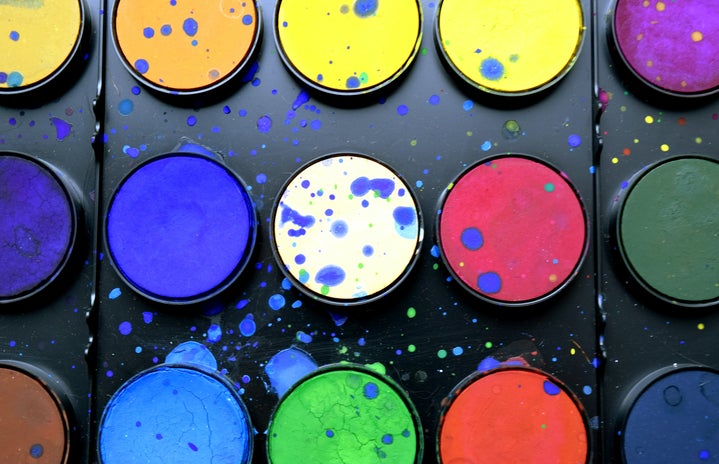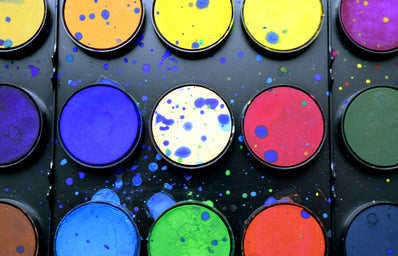The city, where the graffiti screams (as in one of the lyrics by the famous Brazilian musician Criolo*), still treats with much prejudice the words that are shouted by the streets, words made by graffiti artists. Luiza Bortolatto is a student of publicity in Cásper Líbero, which, through the graffiti, spreads her phrases around the city of São Paulo. She talked about some of her experiences writing graffitis on the street and this interview is a great opportunity to reflect about art and deconstruct the notion that letters should be considered vandalism.
Caption: “Ideas are’t ready and packaged as refrigerator products”
How did your story with graffiti started?
I have always been a “word person” and I had friends that used to study language in the city (SP) for fun. One of my best friends said that my phrases needed to go to the streets. I thought it was crazy due to art, most of the times, is synonymous of joke and it’s disrespected by outsiders. However, the street is the main part of the city, I always thought this way and if my words get there, anybody would have access to my thoughts.
Where do you normally do your graffiti?
Car parks, abandoned materials on the street (old sofas, woods, chairs…), internal walls of houses (authorized and requested by the owners) and alleys.
Was it difficult to learn how to do graffiti?
I took a little while to understand why some inks spill and others don’t. I start to laugh every time I remember when I started to test some letters on the floor of an alley. Despite this, you can learn it by yourself (by practicing and exchanging ideas with others who have already experienced that).
Do you feel sexism in this practice?
Inside the group of people who practices, not. I never suffered anything related to this and almost every artist that I know and have affinity is a man. But regarding the recognition, the outsiders rarely talk about the work of woman in this art, so, by this side, yes (although it’s fault of the “public”, not of the artists).
Who is your biggest influence in this art?
Rafael Sliks!
What does graffiti mean to you?
We need to know that graffiti is one of the elements of Hip Hop culture. This has several values, one of them is unity. Graffiti is to leave meaning in the most public places of the world and be able to create meaning in so many people’s life to the point of not knowing what the reach will be.
What is your point of view about the difference between graffiti and “pixo” and about the illegality of the second?
I think there is a shortage of study. The graffiti started with letters, the drawing came after. At the “essence” it isn’t different. About the prohibition, I agree that you must have an authorization to get into the residence of somebody, for example. However, marginalizing words is the end of the world. Many of the drawings created by renowned artists don’t have an authorization, and many phrases do. People need to stop associating letters to “crime”and drawings to “socially accepted”. I also think there is a shortage of space for art in Brazil, and disregarding private property, I don’t think it should be criminalized to write in surfaces “without owners” (a trash can, for example). Whose trash can is this? (It’s the government’s trash can, paid with taxes)
São Paulo is internationally considered the graffiti city, but do you feel a lot of prejudice by the citizens of São Paulo with the Graffiti artists?
Laughter came with the answer: obviously. Everyday, in every place and regardless of whether or not it’s authorized, there will always be someone thinking it’s ugly! I disagree with the nomination, because we, clearly, don’t have space. However, there is no lack of artists involved in the fight for respect! Fortunately, others have got their place in others countries which deserve greater acknowledgment for their opening regarding the graffiti.
Graffiti always have been a polemic art, nevertheless in the last months a lot more have been discussed about that due to the actions of the mayor João Doria – he ordered that several graffitis in some parts of the city should be erased. What is your opinion about theses measures of the mayor and about the public’s reaction?
I got one of my phrases that can answer it better for me. Including, it have been authorized by the owner of the car park on Consolação Street and I’m sure that due to the dripping ink, and because they are words (and not drawings) most of the people thought it was “vandalism”
Caption: “Sorry mayor for the DISS, but the street is ours independent of who was elected”. Luiza explained that DISS is a kind of rap that is used to ‘attack’ someone. She made this choice of the word due to this being an element of the Hip Hop culture.
Did you have problems with the law because of any graffiti?
I have already been approached by police officers, yet I have never had problems. I use to talk to the owner to ask for permission.
Of all the graffitis you have already done, which one is your favorite?
I can’t have a favorite one, precisely because I don’t make drawings. Words are unique and the life is so full of subjects.
Is the graffiti just a hobby for you or do you intend to take it as a profession?
I intend to take it as a profession, but I’m financially realistic. Owing to my love for the words, I’ll work as advertising writing, but if I have any future opportunity elsewhere ( I doubt a lot that I’ll live long enough to see Brazil appreciating art) I would be fulfilled. Sliks ( the artist I quoted) is a big example for me. Here in São Paulo he is more seen as a “pixador”, while in others countries his work-called “pixos” (which are letters, that is it, they’re part of graffiti) are exhibited in art galleries.
To sum up, what do you think about the devaluation of the art in Brazil, where most of the population disregard the need of artists receive payment by their job?
I think I’ve unintentionally spoken a little about it before. After all, there isn’t a way of let the devaluation go unnoticed. Firstly? Disrespect. Art is one of the few things that remind the human being that besides being, it’s human. It saves lot of lives, not only of artists, but also from who receive it. Provides reflection, and can be more real than many people. A poem, a paint, a music, among other forms of art are able to bring unique meaning and create strength to face many things. This answer never should end. It’s hard to get a numerical value for something so precious, but it certainly is worth a lot.
Caption: “The street and its orphaned screens”


